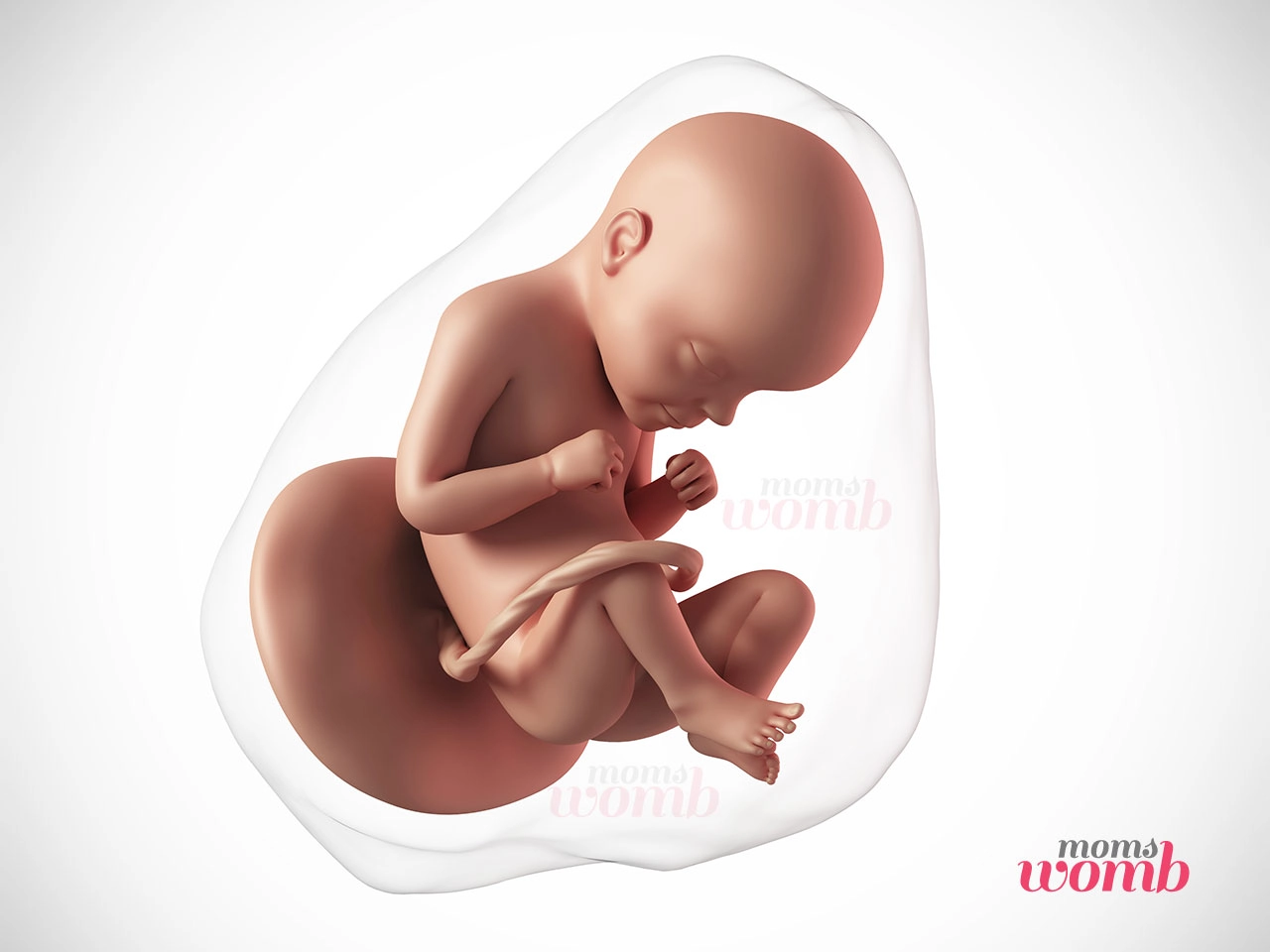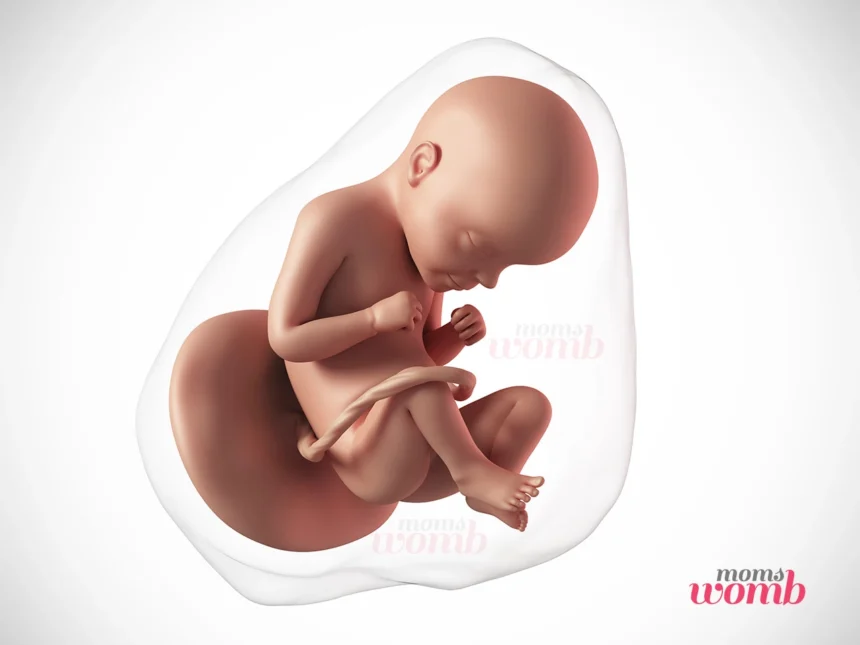It’s time to monitor the fetal kick count, When you are 29 weeks pregnant, your uterus is now
about 3½ to 4 inches above the belly button. This week, you should pay attention to your baby’s movements. You may observe patterns of sleep as well as wakefulness in your little one. In case you find any kind of abnormal baby movements or a reduction in the number of movements, make certain to call your care provider.
You will notice a great increase in the blood volume, almost doubling the previous level. By this week, you will have gained 15–20 pounds. Make sure that you take regular prenatal vitamins, such as iron and calcium. As the third trimester is the most developmental period for your baby, there is a great need for calcium and iron for the developing baby. If you are not getting the required levels, then the developing baby uses iron and calcium from your body, thus causing a deficiency of these vitamin levels in your baby.
Insufficient calcium levels can lead to osteoporosis in the future, and an iron deficiency can lead to anemia. Labour Induced Medication
Symptoms experienced:
Varicose veins are the most common condition that many pregnant women experience. You can reduce the severity of this condition by keeping your blood flowing, watching your weight, and avoiding heavy lifting.
Itchy abdominal skin is another common pregnancy symptom. During pregnancy, your skin will be stretched to accommodate the growing uterus and your increasing body weight. This stretching makes your skin become dry, thus causing itchiness. Applying a moisturizer rich in vitamin E can help to reduce itching and also decrease the formation of stretch marks.
Apart from these conditions, there are several other pregnancy symptoms that you may experience. They include constipation, forgetfulness, hemorrhoids, occasional headaches, difficulty sleeping, skin hair, and nail changes. Baby Development
Physical changes that occur in a 29 week pregnant woman:
Healthy weight gain is a sign of a healthy pregnancy and the baby’s development. However, during pregnancy’s third trimester, some women may experience sudden weight gain within a few days, followed by elevated blood pressure levels, severe swelling of their face, hands, and a debilitating headache, which all can signal a condition called preeclampsia. If it is the case with you, make sure that you are under the doctor’s supervision for a well-timed and safe birth.

Fetal changes that occur in a 29 week pregnant woman:
The baby in a 29-week pregnant woman is now about 15–16 inches long, weighs about 2.5 pounds, and looks more like an infant.
During this time, your baby’s eyes will almost appear blue, and now he/she can differentiate intense sunlight or artificial lighting from your uterine walls.
From now on, the baby’s movements are less flexible and noticeable because that area is now more confined, but you will still feel the baby stretching and kicking. In vitro fertilisation
The testicles of a baby boy will descend from near the kidneys, over the groin, and all the way to the scrotum. For baby girls, the clitoris is quite prominent as it is not yet enclosed by the labia. This will develop and be covered within the last couple of weeks prior to birth.
The baby’s head is growing larger, and the development of the brain is more rapid during this period. By the end of pregnancy week 29, almost all the babies will respond to sound.
Baby’s skeleton system will harden, and muscles, lungs, and the brain will continue their development.
By this week, almost all the babies will have hair on their heads, and the baby’s head is now in the right proportion with the rest of the body.
The 29-week-old fetus will require more nutrition from the mother in order to develop sufficiently to ensure proper delivery. Make sure that the baby grows well enough before it arrives outside.
What care should be taken by a 29 weeks pregnant woman?
From pregnancy week 29 onward, it is very important to eat several smaller meals per day. This period is crucial for your developing baby to receive the required nutrients. Also, you should be very careful when it comes to your eating habits. The increased levels of progesterone hormone can tremendously slow your digestive system, and the decreased belly space makes you unable to eat larger portions of meals. So, consuming several smaller and more nutritious meals is very important for the healthy growth and development of your baby. Make sure to drink plenty of water to reduce constipation, which can also result in hemorrhoids.
Generally, most pregnant women who are in their third trimester stop their physical activity. They believe that because of their larger belly size, engaging in physical activity will harm their developing baby. It is completely wrong! Exercises such as walking or swimming are most recommended, and they also make you feel more energetic. Practice workouts that help to strengthen your abdominal muscles, which give better support for your back. Remember that after the fourth month, you are not allowed to do workouts while lying on your back.
Participating in prenatal yoga, meditation, and childbirth classes can help you become informed about several important things about pregnancy as well as labor and birth. Prenatal yoga helps to reduce your back pain, and meditation reduces stress levels during pregnancy.
Also, pregnant women in their third trimester should be aware of the premature signs. They include:
- Lower back pain
- Menstrual-like cramps
- A drop of amniotic fluid from the vagina or watery brownish or pinkish discharge accompanied by the passing of thicker, gelatinous mucus plug
If you notice any of these conditions, immediately call your care provider.
Things you should know during 29th-week pregnancy:
Most pregnant women are not aware of the Pitocin drug, which is used to speed up their labor process. It is utilized for about 1/3 of all births.
Right from the start, Pitocin induces hard labor. Also, it helps to stimulate regular and frequent contractions right from the start, which is totally distinct from natural labor. Pregnant women who take the drug should be under their doctor’s supervision to observe the reaction to Pitocin.
Are you debating whether or not to breastfeed your child? For first-time mothers-to-be, it is very important to recognize the importance of breastfeeding. Breastfeeding can help both you and your baby. It regulates hormonal production in your body that helps you calm down. It increases your child’s immunity so that he or she can fight off any harmful conditions.
Breastfeeding regulates the production of the oxytocin hormone, which increases uterine contractions and helps to decrease vaginal bleeding following the delivery. Also, breastfeeding makes postpartum weight loss easy.
Have a wonderful pregnancy journey! Continue reading to learn more about the exciting events that occur during pregnancy week 30…









